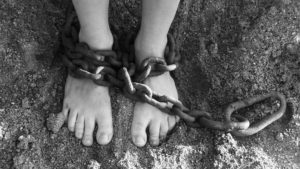
This week contains both Father’s Day and Juneteenth, which makes it a good time to ponder the whole concept of patriarchy, on the one hand, and chattel slavery, on the other. As a Jewish Canadian of Eastern European descent, I have no ancestral memory of slavery beyond Egypt; we have plenty of other generational trauma, but not that one. As someone who was assigned female at birth and grew up mostly in Israel, however, I can tell you plenty about patriarchal systems and rampant sexism. Not that other places aren’t sexist and patriarchal – we are all watching, with great concern, as parts of the United States claim the right to forced birth, effectively taking state ownership of people’s body parts. As Elie Mystal demonstrates in his book Allow me to Retort, this is a complete violation of their constitutional right to be free of forced labour, but this goes much deeper. It is no coincidence, in my opinion, that many (although by no means all – we have those people here too) of the places in which this is an issue are also those with a history of slave ownership. It takes a particular kind of mindset to assume that you are entitled to someone else’s body, whether to work your fields or bear your children, and those two things are closely related.
In her remarkable book, Power, Ethics, and Ecology in Jewish Late Antiquity: Rabbinic Responses to Drought and Disaster, Julia Watt Belser makes an almost casual reference to the parallel between ownership of land and entitlement to childbearing people. The symbolism of the fallow land craving the drops of rain in order to bring forth life-sustaining food is pretty obvious in a patriarchal society. If a man can own his land (and pray for rain from his Father in Heaven), his sheep and his cows, there’s only a small step to his owning his wife, as well, unless there are strong safeguards in place to ensure that she is also seen as having been created in the Image of the Divine – a whole and complete person in her own right. Let’s not even open the subject of the ownership of children.
So as we celebrate the fathers (not Fathers) in our lives, and as our neighbours to the south celebrate the official end of slavery in their country, let’s not forget that the fight for true freedom and autonomy is not over. As long as one adult can control the body of another adult, none of us is free.
